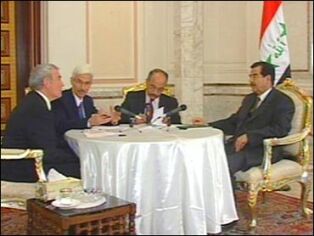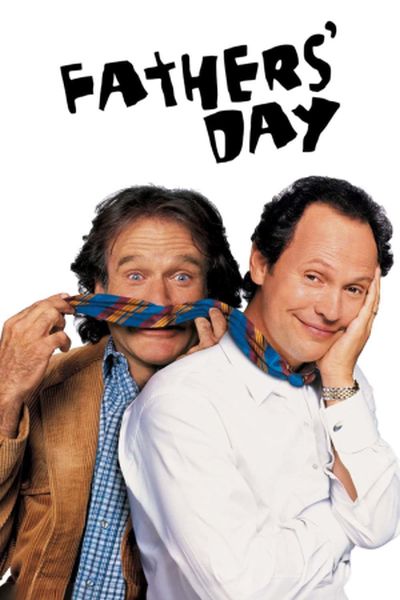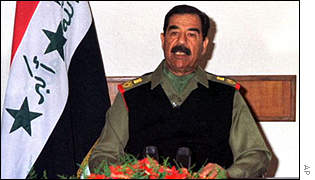Rather Not
From The New CriterionFifty-seven boxes were recently returned to the Kurdish city of Sulaimaniya in Zeit trucks — large Russian military vehicles — by the Iraqi government authorities. Each box contained a dead child, eyes gouged out and ashen white, apparently drained of blood. The families were not given their children, were forced to accept a communal grave and then had to pay 150 dinars for the burial.
News item from the London Sunday Observer of 15 March 1987
When the man responsible for such an atrocity — one among many others and not by any means the worst — appears on American television to talk to “America’s most respected newsman” about his hopes and fears, his devotion to his people, his respect for American leaders and his strong religious faith, is it then just a matter of good manners not to mention the dead children, like John Cleese’s character in “Fawlty Towers” not mentioning the war to his German guests? Presumably Dan Rather, who recently (as he puts it) “found himself” interviewing Saddam Hussein in one of the latter’s presidential palaces in Baghdad, would say that it was. And, unlike Basil Fawlty, Rather was far too slick to get caught inadvertently mentioning his interlocutor’s career as a mass murderer.
But manners, like TV, can only operate within a limited moral framework. The intimacy and familiarity of the medium naturally lead us to assume that those who appear on it inhabit the same moral world as ourselves — not only because it is good manners to assume this in the absence of any compelling reason to believe otherwise but also because it is TV’s own most basic assumption. Extremes either of good or evil simply don’t show up on TV, whose essential and democratic property it is to reduce everyone and everything to the same level. Though the stories of Saddam Hussein’s atrocities over a quarter of a century are well-attested and not seriously disputed by anyone, they have not, for obvious reasons, left an extensive pictorial record behind them. And even the most solidly established facts that remain unpictured seem shadowy and unreal on a medium where everything is pictured.
Even where there are pictures, and graphic ones, the impressions they convey are not necessarily realistic ones. By now it has become almost a truism that the Vietnam War was won and lost on television. The conventional wisdom supposes that the American people, though initially supportive of their leaders’ claims that Communism had to be defeated in Southeast Asia, shifted towards opposition to the war when they saw the reality of the war on television, by which is meant the blood and violence of it. The growth of antiwar feeling and the demonstrations prompted by this shocking realization ultimately, so the story goes, forced the Nixon administration to get out of the war, proclaiming that it had achieved “peace with honor.”
I don’t suppose that this view of the matter is entirely false and meretricious — though it does seem strange that, as the polling data suggest, it took at least six or seven years’ worth of those graphic and moving pictures to produce a majority against the war — but the claim ought to be treated with some suspicion if only because it is so transparently self-serving. For the legend of the efficacy of the news media in crowbarring their country out of the Vietnam war is intimately bound up with the news media’s view of the illegitimacy and even immorality of that war. And the two go together to produce one of the three great landmarks — the other two are the civil rights movement and Watergate — in the great saga of media triumphalism.
They are also, the cynic might say, landmarks in the media’s long march to dominance over the nation’s traditional republican institutions. What is undeniable is that the adherents of this mythology have based their arrogance and self-conceit very largely on the moral capital they suppose themselves or their journalistic predecessors to have acquired by performing such signal public services — to the American public, if not to the Vietnamese. Which is why the mythologization of the war continues. As I write, I notice that they’re showing a TV movie on a cable network about the heroic story of Daniel Ellsberg and the Pentagon Papers. There may, I suppose, still be two opinions about the wisdom of American withdrawal from Vietnam, even though as a disingenuous reporter pointed out at President Bush’s press conference on March 6th, the dangers to ourselves of a Communist victory forecast by our leaders at the time have not come to pass. But what will not stand up to even a moment’s scrutiny is the assumption that what appears on television is in any sense “reality.”
Almost any medium through which wars are or ever have been perceived is more “real” than television, whose nature it is to homogenize and reduce to bland familiarity any reality that drops into the televisual sausage machine. There was a hilarious illustration of this truism in the aftermath of the Rather-Hussein interview when it transpired that CBS had hired an actor called Steve Winfield, a man with a talent for speaking in a variety of foreign accents, to read the part of Saddam’s translator — in fact there had been several of them — in a false Arabic accent. This was, said a spokesman, “in complete compliance with CBS News Standards.” An executive at a rival network said: “The general consensus in the industry was it was pretty dumb, but it’s not a game-over kind of error.” Why, after all, should CBS be censured for making sure, as all the networks do, that “reality” conforms to its audience’s expectations?
It is because of television’s ability to deform everything at which its cameras point into a uniform unreality that we so love it, for that unreality is always and inevitably a comforting one, even when it shows us horrific acts of violence. When the Vietnam war was at its height, people had already been looking at acts of violence on TV for twenty years. There was, to be sure, a certain titillation provided by the reflection that the violence on the news was “real” — just as there is today in those “reality” series where familiar stories of courtship or survival are ostensibly taking place outside the fictional TV framework which has made them familiar. Yet I doubt that more than a small fraction of the audience for such programs thinks of them as really real, since they look at least as much like fakery as everything else on TV.
“Survivor,” for example, never produces any deaths or any serious danger of death — nothing more than occasional discomfort and some minor injuries. Nor do any of the shows featuring Bachelors or Bachelorettes allegedly about to be paired off with someone after being put through their elaborate TV courtships, ever produce any actual marriages. Yet we call these “reality” shows because, at least compared to the staple TV diet of sitcoms and soap operas, they are relatively unscripted. The rather fluid boundaries between fiction and reality also apply to the news, which most viewers are by now wise enough to know is only a version of reality, owing much to the editing and scripting that has brought it to television.
People in the 1960s knew this already. Television, like the movies before it was largely built on violence. The very existence of a generic quality called “violence” (as opposed to my violence and your violence, good violence and bad violence, which would have been completely inseparable from any question of generic violence until quite recent times) depends largely on television. Everything is generic on TV, and everything is domesticated. So “violence” whether real or imaginary comes out looking substantially the same. People can’t tell the difference because they don’t want to tell the difference, of course, but TV is a great help, since it makes the violence look all the same. The impact of the violence we see on TV is therefore diminished, and it is further diminished by the repetition. In fact, there is a case to be made, I think, that the war in Vietnam was actually lengthened by the nightly images of violence. Outrage and familiarity don’t go well together.
But there is one way in which television really does have a political impact, and an impact conducive to “peace” — if by “peace” we mean what the protestors mean, namely the refusal of their own country to fight. Real peace, in the sense of the absence of violence, is neither here nor there. You could ask an Iraqi. But television will always prove a valuable weapon in the “antiwar” arsenal to the extent that it does not allow for the existence of either great good or great evil. All is reduced to the same blandly human scale, so that Dan Rather’s interview with Saddam Hussein — a man unquestionably responsible for the deaths of hundreds of thousands, including many brutal murders — might as well be with Ricky Ricardo so far as the innocent eyes of his audience are concerned.
Pointing the cameras at the enemy and allowing him to talk will immediately wash any sense of the reasons why people go to war out of the minds of the viewers and replace them with this same banality. Maybe this is a good thing. Certainly it is if you are a pacifist. But if you believe that it is sometimes necessary to go to war, it is a very bad thing indeed in the case of any war where it is necessary. The mere fact of the interview, once it had occurred, was enough to confer the kind of legitimacy on Saddam that we are accustomed to in our own leaders — a fact which he himself surely recognized when he took the occasion to challenge President Bush to a debate. Rather was of course too impressed with himself for hobnobbing with a world statesman to notice his own part in this effort at legitimation.
This inability to see when they are being used by someone like Hussein is all but endemic among journalists, even those who don’t themselves get to preen on television. Hence stories like the one on the Reuters wire about Saddam’s own televisual presence titled: “Saddam Keeps Finger on Baghdad Pulse” by Samia Nakhoul. This about a man who is well known for torturing and murdering any who dare to raise dissident voices! “Saddam Keeps Foot on Baghdad’s Neck” would be more accurate. Yet the story told of how Iraqi television shows the dictator always among his people, chatting with and exhorting them.
As part of his effort to rally his people, Saddam talks the language of every Iraqi — from soldier to villager — recalling his early days as a modest fighter and village boy. He regularly interrupts the officers to send greetings to this army unit, residents of that village, this tribal and clan chieftain. He shares a joke or invites them to drink tea. If words and body language are anything to go by, the Iraqi president is not about to retreat to his bunker as war with the United States appears closer.
Ah, but that’s just it, isn’t it? Whether or not words and body language are anything to go by, they’re all that television has to go by, a fact well-understood by the Iraqi ministry of propaganda but not, seemingly, by Samia Nakhoul — or Dan Rather.
The point is not that Rather should have aggressively challenged his interlocutor as he would have done with, say, an elected official back home. If he were to have read out even a few of the available reports of Saddam’s atrocities, even safely back in the studio, it would have sounded unreal — not because it would have been unreal but because it would have been untelevisual. TV has its own reality — as the spate of “reality” programming over the past three years ought to have made clear. The point is that he should not have been there in the first place, lending respectability to such a monster by presenting Saddam Hussein, as such an interview has by its very nature to do, as a world statesman, every bit the equal of others interviewed by the great Dan Rather, and not a criminal murderer.
In fact Rather’s obsequiousness to the man he called “the Arab Avenger” suggested that the conferring of stature was from Saddam to him rather than the reverse. By the end of the interview, Rather was clearly reveling in his own self-importance as he genially reminisced with the dictator about their past association. “I appreciate your remembering that we met in 1990. And I interviewed you in this very building. Given the sober moment and the danger at hand, what are the chances this is the last time you and I will see each other?” As Tim Graham, analyst for the excellent Media Research Center pointed out, “Rather and Saddam have met two times in their long lives for a total of about four hours. But Rather seemed to want to underline their somehow notable personal relationship as historical figures.”
Perhaps it was catching, since Saddam, in just previously having proposed to debate President Bush, was similarly trying to raise his own status. As Jenny McCartney wrote in the London Sunday Telegraph, “Merely by appearing on television with the US President, Saddam — possibly in the well-cut pinstripe suit that he wore to meet Dan Rather — would be elevated to the status of Bush’s political equal.” But, she might have added, the proposal could have been Saddam’s wry comment on the fact that Dan Rather sought, merely by appearing on television with the Iraqi dictator, to be elevated to the status of his political equal. Of course the price of Dan’s self-affirmation was the humanization of a monster. “When we witness someone being pleasant on television,” writes Miss McCartney, “it becomes almost impossible also to imagine them being truly, deeply vile: the longer a dictator smiles under the studio lights, the further the stench of his torture-chambers recedes.”
In one sense Rather and Hussein are somewhat similar characters — in their complete lack of any sense of self-irony. In his own account in the Wall Street Journal of how the interview came about — which, by the way, does not mention the contribution of the former Attorney General Ramsey Clark, who is now trying to arrange the impeachment of President Bush — Rather wrote for instance that the proposal for the interview was put to Tariq Aziz who “listened and then said that they liked the fact that I knew the region well and had a reputation for being independent.” Gee, Dan, can you think of any reason why he might have said that — apart, I mean, from the fact that it is so resoundingly true? But then an utter lack of a sense of irony is probably part of the job description of TV anchor men, right up there with a full head of hair. What was more disappointing was when even those TV critics who take the stuff home in sackfuls for, presumably, spotting such ironies, didn’t spot this one.
Thus Tom Shales of the Washington Post couldn’t see that the interview was not really about Saddam but about Sad Dan, whose spectacular “get,” said he, represented “an undisputed triumph for Rather and reaffirms his position as America’s premier newsman.” The question, Who is the star here? used to arise occasionally in connection with celebrity interviews as an amusing paradox. Now, apparently, there is no doubt about it — and no reason to be amused. Rather’s “questioning was tough, blunt, thorough and unaffected by posturing. And it has to be said that Saddam Hussein handled himself well, too, suggesting he is still his own best propagandist,” wrote Shales. This is simply false in every detail: the questioning was not in the least tough but cravenly obsequious and full of posturing; Saddam gave only the official Iraqi version of reality that is and has long been drearily familiar. His answers to Rather’s questions were all bald assertions, many of them patently false, which he insisted be taken at their face value.
But Shales is as much bound by journalistic convention as Dan Rather. “Saddam Hussein was predictable, perhaps, but no more predictable than Bush is,” he writes. “Americans who pay attention to the news know how Bush will react to any new Iraqi proposal (reject it) or accusation (deny it) or contention (call it a lie). Hussein said Iraq has no missiles exceeding United Nations guidelines and the administration says it does. And so on.” This is the official liberal line as adapted for use by the even-handed and neutral media, namely that the truth value of propositions uttered by Saddam Hussein and George Bush is to be treated as being exactly the same — unless, as Democratic congressmen McDermott and Bonior notoriously insisted it should be, the benefit of the doubt be given to the dictator.
Not that Shales was being taken in. No sir. “He was taking pains not to come across like the reckless, ruthless dictator described in U.S. rhetoric. He wasn’t exactly a cuddly old dumpling, however.” What he doesn’t see is that the meeting itself, and the set up of the interview as a familiar TV moment are what make him something other than “the reckless, ruthless dictator described in U.S. rhetoric” — which “rhetoric,” by the way, happens to be the truth of the matter by any definition of “reckless”, “ruthless” or “dictator” that Mr. Shales would care to name. But of course we understand that he must not say so, for fear of losing face among his fellow, ostentatiously independent newshounds.
Like Rather himself asking Saddam to insult instead of flattering him, lest he be thought to have been co-opted — as the request itself showed that he was — Shales’s main concern is not to reveal the truth about Saddam Hussein or Rather or the interview but to protect his own standing as a journalist, according to the requirements of the American journalistic culture. Thus “The interview, and the ‘get’ that preceded it, could be seen as a notable career capper — or one of a series — for the 71-year-old Rather,” says Shales, who predicts the great man’s retirement from the CBS “anchor” chair by the end of the year. Bravo Dan! Whatever death and misery the war may bring — or, as some say, end — we can rest easy that it has enabled your career to be capped.
Discover more from James Bowman
Subscribe to get the latest posts to your email.






